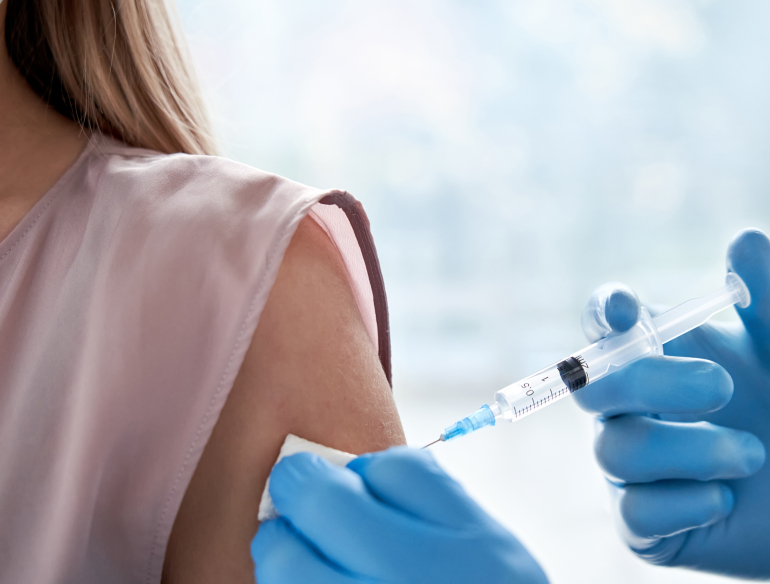Vaccine manufacturers should consider updating vaccine composition to include the Omicron strain, according to the WHO Technical Advisory Group on COVID-19 Vaccine Composition (TAG-CO-VAC).
The independent and multidisciplinary group of experts, which includes the Kirby Institute’s Professor Raina MacIntyre, have today published a series of recommendations on vaccine composition in Nature Medicine.
“The current challenge with COVID-19 vaccines is that they were developed based on the first strain of the virus in 2020, which is quite different to what is currently circulating,” says Professor Raina MacIyntre. “Whilst the vaccines continue to protect well against hospitalisation and death, the newer variants ‘escape’ the protection of vaccines more than the original virus did, and so COVID-19 is spreading more easily.”
The TAG-CO-VAC analysed the cross-neutralisation data, which reveals the likely effectiveness of the vaccine against the virus for the existing variants of concern and how effective it will be against ongoing emerging variants. They looked at the data following infection or vaccination in people with varied prior exposure to SARS-COV-2 antigens.
“The TAG-CO-VAC is advising vaccine manufacturers and regulatory authorities to consider updating vaccine antigen composition by including Omicron. Updated vaccines against the Omicron variant are now available as a bivalent booster in Australia,” says Professor Raina MacIntyre. “All adults in Australia can now access the bivalent booster as a 5th dose if they’ve not had a COVID-19 booster or confirmed case in the past six months, and it is strongly recommended for those 65 years and over or adults aged 18-64 years with medical risk factors.”
“Importantly, the primary objective of vaccination is protection against severe disease, and against this objective, the current vaccines continue to perform very well. The bivalent booster, however, can give better protection.”
However the experts caution that this ‘variant-chasing approach’, while effective for now, may not be sustainable in the long-term.
“Given the uncertainties of how the virus will evolve over time, we need to continue exploring other approaches to vaccination. Some intra-nasal vaccines in development are showing promising signs of immune protection. Universal vaccine approaches, like that one currently being explored by the Garvan and Kirby Institutes which target a part of the virus that is less likely to change over time, may be the answer,” says Prof MacIntyre.
Other recommendations included better and country-specific data collection and the importance of testing and genetic surveillance.
Contact
Estelle Jones, Communications Officer
02 9385 9987 (to mobile), ejones@kirby.unsw.edu.au
Header image credit
iStock
